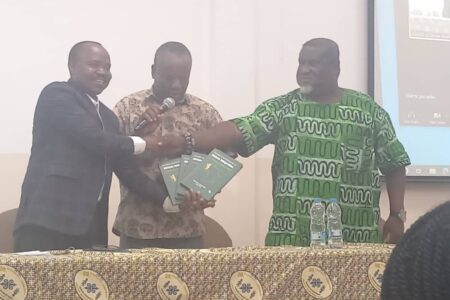After achieving significant success in Tanzania, Kenya, and South Africa, specifically at the Universities of Iringa, Kenyatta, and Johannesburg, the book by two Tanzanian historians, “Hurdles and Prospects of African Integration: The Question of Western Sahara,” edited and published by the African Proper Education Network (APE), was launched today, July 16, 2024, at the Institute of African Studies, University of Ghana, Legon, Accra.
The launch event saw a large gathering of academicians and historians from the Institute, particularly experts from the Departments of History and Social Sciences. The presence of various media houses underscored the significance of the book’s topics, which are of particular interest to West Africans and the global community.
During his presentation, Tanzanian historian Mr. Chuhila Maxmillian provided a historical background on the Western Sahara issue. He highlighted the historical connections between Moroccan sultans and Sahrawi tribes, based on historical archives he studied during his visits to the Saharan provinces of Laayoune and Dakhla, located in southern Morocco.
Mr. Maxmillian advocated for collective African integration, emphasizing that Moroccans are capable of resolving their internal issues. He argued that separatism does not serve the interests of a unified Africa, which, despite its ethnic and linguistic diversity, shares common cultural and customary bonds. He stressed that unity and integration are essential for countering external threats.
His presentation illustrated the socio-economic development in the Sahara region, attributing it to the Moroccan government’s efforts and the goodwill of the King of Morocco, who has been committed to making the Sahara a hub for development and investment. Contrary to negative portrayals on social media, he depicted the region as thriving with favorable living conditions.
Mr. Maxmillian called for effective and constructive dialogue among Moroccans, focusing on common interests to resolve the long-standing conflict. He acknowledged the efforts of the United Nations and the African Union in seeking a resolution to this historical dispute.
